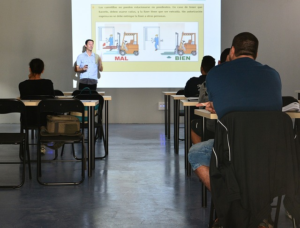You might be thinking, ‘Why does the length of the Series 7 exam really matter?’ Well, let me tell you, my friend, it matters a whole lot.
The optimal length of this exam can make or break your chances of success. In this article, we will explore the factors that affect the length of the exam and uncover the sweet spot for maximum performance.
With strategic tips for managing your time effectively, you’ll be equipped to crack the Series 7 exam and achieve the success you’ve been working towards.
Key Takeaways
- Exam duration and time constraints are crucial for performance and success.
- Factors such as time management and preparation level impact the duration of the exam.
- The ideal exam length balances thorough answering and avoiding rushing towards the end.
- Strategies for managing exam length include prioritizing questions, using the process of elimination, and employing time-saving techniques.
The Importance of Exam Length
You’ll need to understand the importance of the exam length if you want to succeed in cracking the series 7 exam. The exam duration and time constraints play a crucial role in determining your performance and ultimate success.
The series 7 exam is known for its challenging nature and comprehensive content. With a total duration of 225 minutes, it is essential to manage your time effectively to complete all the sections within the allotted time.
Time constraints can create pressure and stress, impacting your ability to think clearly and answer questions accurately. Therefore, it is vital to develop strategies to optimize your time management skills, such as practicing time-based mock exams and setting time goals for each section.
Factors Affecting Exam Length
Factors such as time management and level of preparation can impact the duration of the series 7 exam. Time constraints play a crucial role in determining the length of the exam. With a limited time frame, candidates must efficiently manage their time to complete all the required sections. Additionally, the level of preparation also affects the exam duration. A well-prepared candidate is likely to answer questions more quickly and accurately, reducing the overall time taken. On the other hand, a candidate who is unprepared may spend more time on each question, leading to a longer exam duration. Moreover, the psychological impact of the exam can also influence its length. Nervousness and anxiety can slow down a candidate’s thinking process, resulting in slower response times and a longer exam duration.
| Factors | Impact on Exam Length |
|---|---|
| Time Management | Shorter exam duration |
| Level of Preparation | Shorter exam duration |
| Psychological Impact | Longer exam duration |
| Nervousness and Anxiety | Longer exam duration |
Finding the Sweet Spot: Ideal Exam Length
Once you’ve determined the factors that impact the duration of the exam, it’s important to find the sweet spot for the ideal length.
The ideal time allocation for the Series 7 exam is crucial for maximizing your chances of success. You want to allocate enough time to thoroughly answer each question, but not so much that you find yourself rushing towards the end.
To find the sweet spot, it is essential to consider both the content and your personal pace. Take into account the number of questions, the complexity of the material, and your own strengths and weaknesses.
Additionally, minimizing distractions during the exam is vital. Find a quiet and comfortable environment where you can focus solely on the exam. Eliminate any potential interruptions or distractions to ensure optimal concentration.
Strategies for Managing Exam Length
Finding the sweet spot for the ideal length of the exam can be achieved by implementing effective strategies for managing the time allocation. When it comes to managing the length of your exam, there are several time-saving techniques and efficient test-taking strategies that you can employ:
-
Prioritize your questions: Start with the questions that you feel most confident about and can answer quickly. This will help you build momentum and save valuable time for the more challenging questions.
-
Use the process of elimination: If you’re unsure about an answer, try eliminating the obviously wrong options. This will increase your chances of selecting the correct answer and save time.
-
Pace yourself: Avoid spending too much time on a single question. Set a time limit for each question and move on if you’re struggling. You can always come back to it later if you have time.
Maximizing Success: Tips for Exam Time Management
To make the most of your exam time, it’s important to implement effective time management techniques and strategies.
By utilizing time-saving techniques and creating an effective study schedule, you can maximize your chances of success on the Series 7 exam.
One key technique is to prioritize your study material based on its importance and difficulty level. This allows you to allocate more time to challenging topics while still covering all the necessary material.
Another time-saving strategy is to break your study sessions into smaller, focused blocks of time. Research has shown that shorter, concentrated study sessions are more effective than long, uninterrupted ones.
Additionally, creating a study schedule and sticking to it can help you stay organized and ensure that you cover all the necessary material before the exam.
Frequently Asked Questions
What Are the Passing Requirements for the Series 7 Exam?
To pass the Series 7 exam, you need a score of 72% or higher. This exam is challenging, so it’s important to prepare thoroughly.
Start by studying the exam topics, which include investment products, regulation, and customer accounts. Reviewing practice questions and taking mock exams can help you gauge your readiness.
Additionally, consider enrolling in a prep course or working with a tutor to ensure you have a solid understanding of the material.
How Many Questions Are There on the Series 7 Exam?
There are a total of 125 questions on the series 7 exam. When preparing for the exam, it is important to develop effective study strategies. This can include creating a study schedule, utilizing practice exams, and seeking guidance from experienced professionals.
It is also crucial to avoid common mistakes such as not fully understanding the material or rushing through the questions. By staying focused and taking the time to thoroughly understand the content, you can increase your chances of success on the series 7 exam.
Is There a Penalty for Guessing on the Series 7 Exam?
There is a penalty for guessing on the Series 7 exam. Avoiding penalties is crucial when it comes to your success in this exam.
To develop effective guessing strategies, you must understand the penalty for wrong answers. By knowing this, you can make informed decisions when faced with difficult questions.
Take the time to study and practice different guessing techniques to increase your chances of success on the Series 7 exam.
Can I Bring a Calculator to the Series 7 Exam?
Yes, you can bring a calculator to the Series 7 exam. Calculator usage is allowed and can be beneficial for complex calculations.
However, it’s important to note that the exam provides an on-screen calculator, so bringing a personal calculator is optional.
When preparing for the exam, it’s recommended to practice using the on-screen calculator and familiarize yourself with its functions.
Incorporating calculator usage into your test-taking strategies can help you save time and increase accuracy during the exam.
Are There Any Breaks Allowed During the Series 7 Exam?
Breaks are an essential aspect of any exam, including the Series 7. The break duration during the Series 7 exam is crucial for you to recharge, refocus, and maintain optimum performance.
Taking breaks allows you to rest your mind and prevent burnout, ensuring that you can tackle the remaining questions with clarity and efficiency.
It is recommended to utilize the allotted break time wisely to maximize your chances of success on the Series 7 exam.
Conclusion
In conclusion, finding the optimal length for success in the Series 7 exam is crucial. By considering the factors that affect exam length and implementing effective time management strategies, you can maximize your chances of success.
Remember, time is of the essence, so make sure to manage it wisely. As the saying goes, ‘time is money,’ and in the case of the Series 7 exam, managing your time effectively will lead to a prosperous outcome.
So, take the time to crack the code and ace your exam!





























































